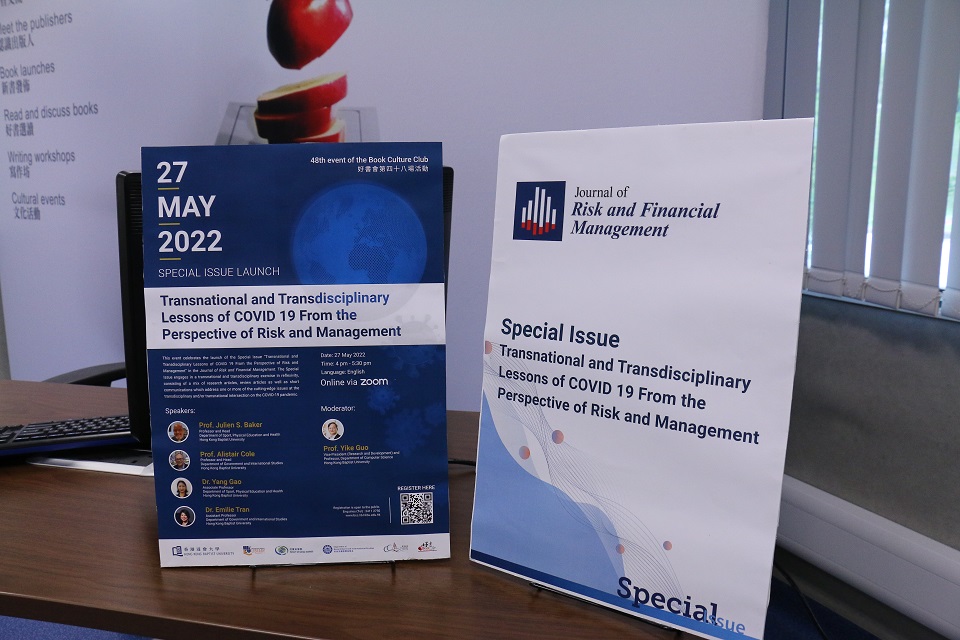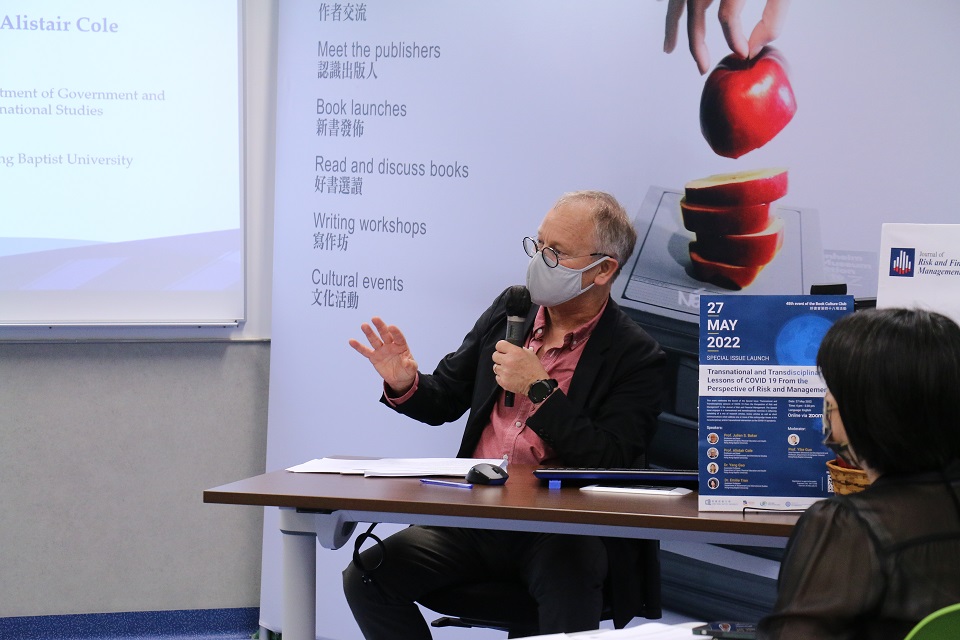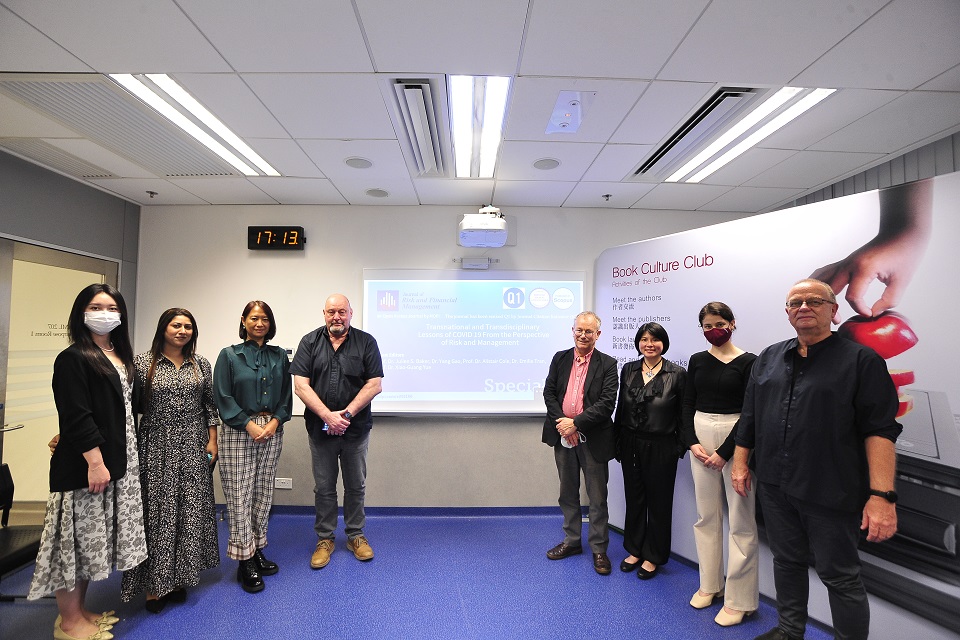Discover HKBU
Transnational and transdisciplinary lessons from the pandemic
22 Jun 2022
The pandemic has fundamentally changed the world and the way we live, work and interact, but what lessons can we draw from this sustained period of upheaval?
A group of researchers from HKBU have recently explored cutting-edge issues at the transdisciplinary and transnational intersection of the COVID-19 pandemic, and discussed what we can learn from the past two-and-a-half years, in a unique edition of the Journal of Risk and Financial Management.
Titled "Transnational and Transdisciplinary Lessons of COVID 19 From the Perspective of Risk and Management", the special issue consists of a mix of research articles, review articles as well as short communications that delve into a wide range of topics, from the impact of COVID-19 on the sport sector to the geopolitical ramifications of the pandemic.
It was launched at an event on 27 May that featured talks by Professor Julien Baker, Professor and Head of the Department of Sport, Physical Education and Health (SPEH); Professor Alistair Cole, Professor and Head of the Department of Government and International Studies (GIS); Dr Yang Gao, Associate Professor of SPEH; and Dr Emilie Tran, Assistant Professor of GIS. Professor Guo Yike, Vice-President (Research and Development), also moderated the talks.
COVID considerations
"Responding to existential dilemmas, the COVID-19 pandemic calls for a major transdisciplinary research effort that necessarily combines several levels of empirical analysis and methodological tools from distinct academic and scientific traditions. Such was the underlying ambition of the conference that took place at HKBU in May 2021, which has given rise, one year later, to the publication of a special issue of the Journal of Risk and Financial Management," says Professor Baker. "The main sections of the book provide specific insights from the medical and social sciences, health and well-being, politics and society, and international relations."
The issue itself is composed of a few clusters of articles based on related themes, and the first group of articles centres on the physiological, psychological and psychophysiological implications of COVID-19. In one paper by Professor Baker and colleagues, the authors refer to the cross-national evidence from lockdowns and confinements, and it shows that COVID-19 has presented a serious challenge to the psychological well-being of individuals, especially in terms of their personal networks, i.e. friends and family, and social distancing practices.
"Even within these tight personal networks, evidence from scholars working on psychological indicators points to an increase in indicators of social tension, such as divorce, gender violence and isolation as a result of the COVID-19 crisis," adds Professor Baker.
The importance of trust and transparency
The second cluster of articles is concerned with the related issues of trust, transparency, civil society, and governance, and they adopt a broad comparative perspective.
In one particular paper, Professor Cole and Professor Baker engage with the relationships between trust, transparency and transnational lessons from COVID-19.
"Though the chapters are framed in terms of distinct disciplinary perspectives and traditions, the overarching spirit of the book aims to open up received wisdoms and paradigms to challenges from scholars working in different academic disciplines and traditions. This innovative and original study provides a concrete example of transnational and transdisciplinary inquiry in action," says Professor Cole.
The journal issue is the outcome of a Joint Research Scheme funded project. It was generously supported by the Hung Hin Shiu Charitable Foundation, the PROCORE-France/Hong Kong Joint Research Scheme, which is sponsored by the Research Grants Council of Hong Kong and the Consulate General of France in Hong Kong, and the Heinrich Böll Stiftung.
Click here to view the special issue and all 13 open access articles.


